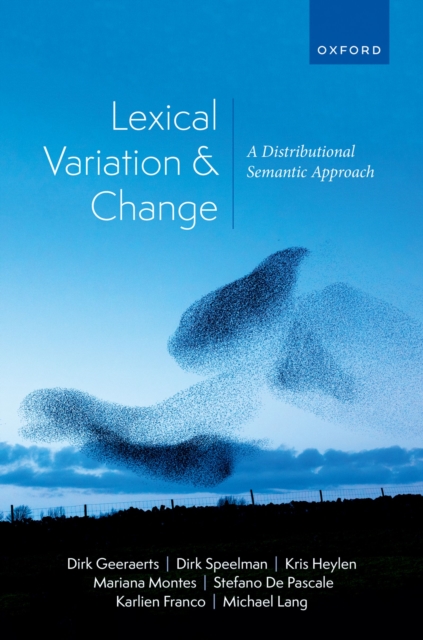
Lexical Variation and Change : A Distributional Semantic Approach PDF
by Dirk Geeraerts, Dirk Speelman, Kris Heylen, Mariana Montes, Stefano De Pascale, Karlien Franco, Michael Lang
Description
This is an open access title available under the terms of a CC BY-NC-ND 4.0 International licence.
It is free to read at Oxford Academic and offered as a free PDF download from OUP and selected open access locations. This book introduces a systematic framework for understanding and investigating lexical variation, using a distributional semantics approach.
Distributional semantics embodies the idea that the context in which a word occurs reveals the meaning of that word.
In contemporary corpus linguistics, that idea takes shape in various types of quantitative analysis of the corpus contexts in which words appear.
In this book, the authors explore how count-based token-level semantic vector spaces, as anadvanced form of such a quantitative methodology, can be applied to the study of polysemy, lexical variation, and lectometry.
What can distributional models reveal about meaning?
How can they be used to analyse the semantic relationship between near-synonyms, and to identify strict synonymy?
How canthey contribute to the study of lexical variation as a sociolinguistic variable, and to the use of those variables to measure convergence or divergence between language varieties?
To answer these questions, the book presents a comprehensive model of lexical and semantic variation, based on the combination of a semasiological, an onomasiological, and a lectal dimension.
It explains the mechanism of distributional modelling, both informally and technically, and introduces workflows and corpuslinguistic tools that implement a distributional perspective in lexical research.
Combining a cognitive linguistic interest in meaning with a sociolinguistic interest in variation, the authors illustrate this distributional methodology using case studies of Dutch and Spanish lexical data that focus onthe detection of polysemy, the interaction of semasiological and onomasiological change, and sociolinguistic issues of lexical standardization and pluricentricity.
Throughout, they highlight both the advantages and disadvantages of a distributional methodology: on the one hand, it has great potential to be scaled up for lexical research; on the other, its outcome does not necessarily neatly correspond with what would traditionally be considered different senses.
Information
-
Download - Immediately Available
- Format:PDF
- Pages:320 pages
- Publisher:OUP Oxford
- Publication Date:23/10/2023
- Category:
- ISBN:9780198890683
Information
-
Download - Immediately Available
- Format:PDF
- Pages:320 pages
- Publisher:OUP Oxford
- Publication Date:23/10/2023
- Category:
- ISBN:9780198890683






